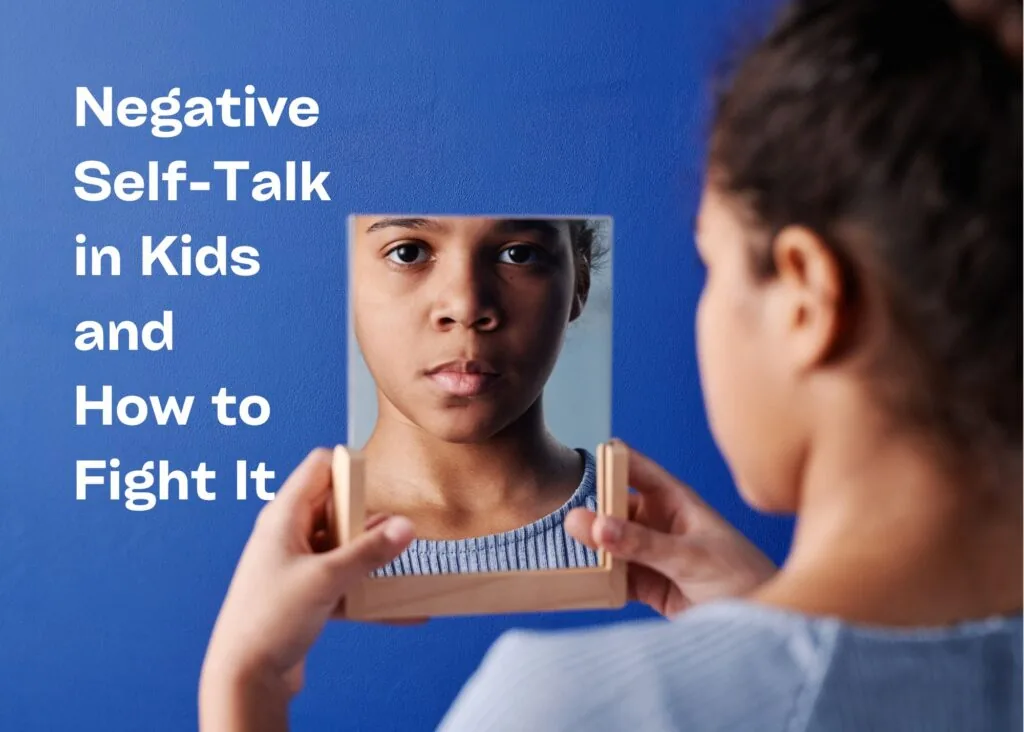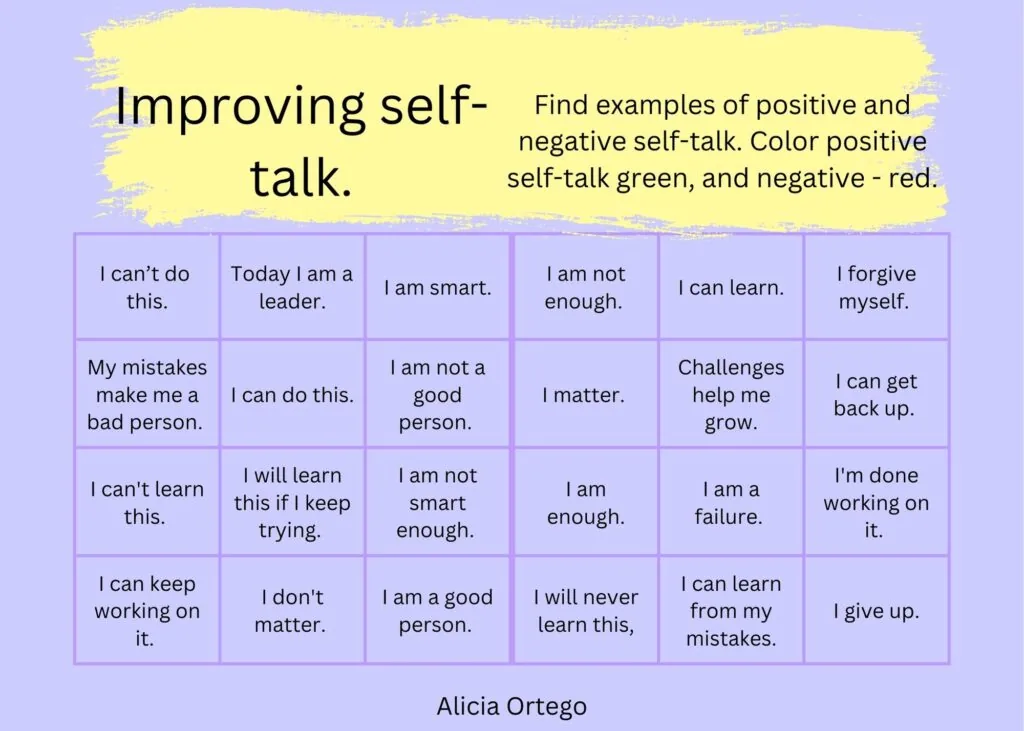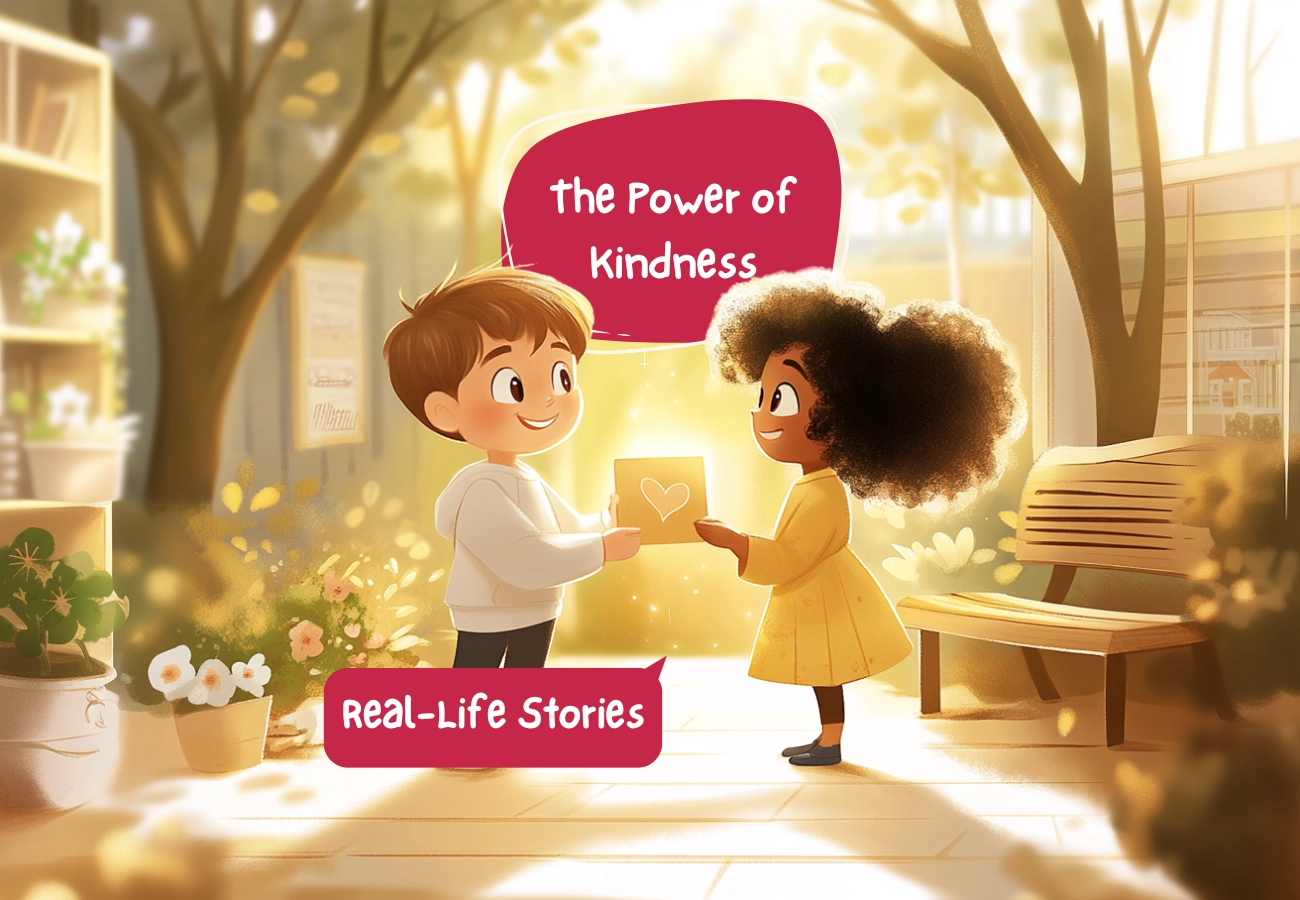Negative Self-Talk in Kids and How to Fight It

What to do if your children says negative things about themselves? A lot of parents are concerned with such a question. While negative self-talk isn`t always a sign that your kid is struggling with psychological problems, it’s very common now for children to have issues with low self-esteem. How to spot negative self-talk and help your kids love themselves?
How to Stop Negative Self-Talk?
What is the definition of negative self-talk? Well, kids are very susceptible to negative self-concepts. If somebody says: “You’re a loser!”, your kid will believe it. Even some parents may make a mistake of badmouthing their kids.
Kids can develop their own concepts based on their parents` behavior, random phrases, and actions. And often they misunderstand it all, making their own wrong conclusions about themselves. That’s an example of how negative self-talk occurs.
Scientists warn that negative self talk is fraught with consequences. It would seem that it’s just simple thoughts. But they can significantly affect one’s whole life. According to The Influence of Self-Talk on Children research, negative self-talk:
- reduce academic achievements;
- make children give up halfway;
- raise doubts when breaking fresh ground.
Moreover, such kids could change their right answers into wrong ones, hesitate to start social interaction, or experience anxiety when making their own decisions.
The question is how to stop negative self-talk and, vice versa, reveal positive self talk for kids. The good news is that it’s quite possible, the bad one – it’s not a matter of one day. But you can definitely help your little one to cope with it.
Examples of Negative Self Talk
- “I should” complex. Kids may have an inner conviction that they should do everything. And often a child feels sorry for every action he hasn’t done. “I should have said good morning to my neighbor”, “I shouldn’t have made my little brother cry”. There are also “should” concerning the future. “I should be an A-student like my sister is”, “I should get along with my cousin even if I don’t want to”, “I shouldn’t disappoint my parents”, etc. If a kid is too dependent on such “shoulds” he can epress his inner pressure by negative self-talking. “I’m a bad son”, “I’m not as good as my brother”. etc.
This kind of statements can come from the peculiarities of the kid’s character. Take a look at how to promote positive character traits.
- “Otherwise” statements. Some children may have a wrong perception of an action and its consequences. They tend to think using only one pattern – “I shouldshouldn`t be … otherwise I`m ……” For example, “I shouldn’t be the last to run, otherwise I’m a weakling”. Subsequently, the negative self-talk a kid may produce is the second part of such a poor thinking pattern – “I’m a weakling”.
- Catastrophizing. Children are often exaggerating some events. And that’s OK because they’re kids. Yet, make sure they don`t think big of their problems. A thinking pattern such as “John doesn’t want to get along with me. I`ll never make friends” may lead the kid to believe that there’s no good outcome of any situation.
- A-student complex. A kid may be too focused on the result. TSome kids are used to thinking in a way “all or nothing”: “I should be the best”, “I shouldn’t make a mistake”,” I should be nice enough to be liked”, etc. The consequences of the failures are implemented into negative self-talk. “I’m not good enough”, “I’m a loser”, etc.
- Mind Reading. Kids could be sure they can read other people’s thoughts. That’s why they can persuade themselves that their best friend Jim is angry with them for not playing together. Even though Jim hasn`t told them a thing.
Negative self-talk is based around not living up to somebody’ expectations and pressuring yourself into being somebody you’re not. In order to help your kids look at a positive side of things, do this worksheet with them. Bring them back to reality and shed a light onto their positive features.

Click here for a printable version.
How To Respond to Your Kid`s Negative Self-Talk?
Be Realistic
It’s easier to eliminate negative self-talk when we take the situation as it is. If your daughter or son is going to take part in a sports competition and expresses negative self-talk about it, don`t try to persuade him or her that it’s only an illusion. Your kid may fail indeed and that’s OK. Say instead that there could be difficulties, though, one can gain valuable experience. Proper questions asked at appropriate time could help you understand your child better.
Get to the Bottom
Discuss their worries. Try to make clear which type of negative self-talk your kids are struggling with. Help him distinguish between a singular life case and life in general.
Don`t forget to be supportive. Kids tend to be so vulnerable that they can commit dreadful actions while being depressed. But it’s your love that can heal your kids and show them the way to the light. Read this moving story about parent’s love to their kids.
Use Special Worksheets
It’s always better to write down one`s thoughts to analyze them. Special worksheets for kids may be a useful tool when dealing with negative thoughts. Parents can choose the one that is most appropriate for their little one, beginning with his visual preferences and ending with his age.
Thy these amazing self-esteem coloring pages.
Acknowledge the Feelings
It’d be much easier to resolve the problem if your kid can explain to you what his feelings look like. That’s not as easy as may seem. Help him relax by offering appropriate activities – walking out in the park, sketch drawing, or yoga practice.
Find the Reason
Most often kids become victims of their peers, circumstances, and haters on social media. Talk with them to find the reason. Also, have a talk with your little one`s school teacher or coach to make everything clear. It’s possible that your children look up to lnstagram influencers comparing themselves to them. In such a way, they neglects their own advantages. Try to reduce screen time by offering new activities to your son or daughter.
How to Practice Positive Self-Talk?
Stop your little one in the midst of making negative self-talk. When he’s claiming “I’m a bad football player”, you have to say seriously “you are quite a good player but the game was tough enough to make your best”. Also, if parents are self-critical as well, they ought to control their statements in the same way. Now that you know how to change negative self talk to positive self talk, practice it from time to time together with your little one.
Scientists state that positive self-talk can improve one`s achievements. A Dutch study revealed that children who applied positive self-talk managed to upgrade their math knowledge.
First, kids aged 9-13 years old were told to take a math taste. Then, a few days later, they were asked to take a test one more time, now, applying positive self-talk. Interestingly, those children who have self-talked about efforts, not abilities, performed better.
The concentration on the very process, such as “I can try to do it anyway”, appears to be better than saying that “I`m good enough to keep it going”. Why? Because an effort is the easiest thing to do, even though kids often consider it as something impossible. That makes them confident in their actions. The less they worry, the more inner strength they can apply to cope with the task.
Try methods to develop positive attitude.
Conclusion
Get rid of negative self-talk in your child as soon as possible. Otherwise, your kids may become very unhappy people, prone to depression and other mental health problems. You can teach them how to think so that it doesn’t hurt but makes them stronger. For that matter, positive self-talk can be helpful as it does not trigger any negative feelings, but, instead, makes a kid think philosophically.
More articles

How Technology Can Empower Your Kids to Learn, Grow, and Thrive
Technology often gets a bad rap when it comes to its effects on children, including issues related to screen time, cyberbullying, and online distractions. While these concerns are valid, these misconceptions should not overshadow its incredible potential to enhance education, creativity and well-being for your child when used responsibly and mindfully. When used appropriately, technology […]

Using Alicia Ortego’s Books in the Classroom: Tips and Examples
In today’s classrooms and after-school programs across America, teachers and educators are constantly looking for effective ways to support children’s social-emotional learning (SEL). Alicia Ortego’s My Superpower books have become a favorite tool for many educators to encourage kindness, mindfulness, confidence, and other important values in young learners. Here are some real-world-inspired ways teachers and […]

The Power of Kindness: Real-Life Stories That Inspire and Transform
Kindness isn’t just a feel-good concept – it’s a force that shapes communities, builds bridges between people, and even rewires the brain for empathy and connection. From small children to grown adults, acts of kindness – both given and received – leave lasting impressions. At Alicia Ortego, we explore values like kindness through storytelling. Today, […]



